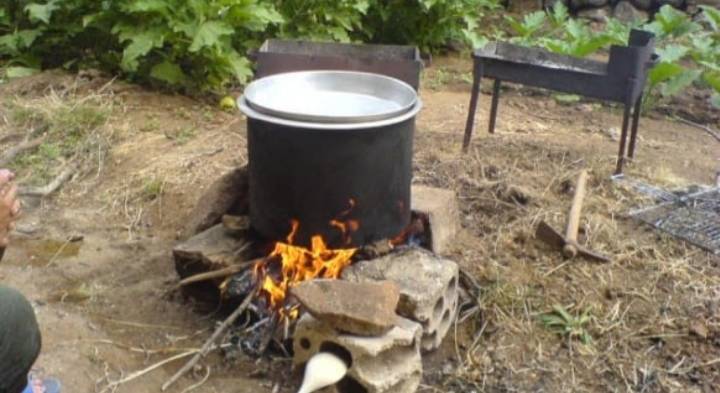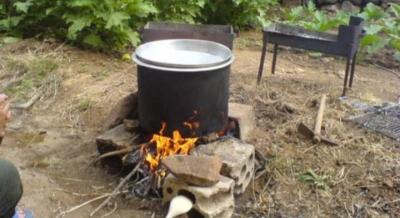As the economic crisis and living difficulties intensify for Lebanese people, especially those in remote villages, many are returning to a simpler way of life and old solutions that their ancestors once used. A large number of villagers and residents of Akkar towns are reverting to 19th and early 20th-century practices for warmth and cooking, where primitive wood stoves were the primary means for both cooking and heating.
This year, the sharp rise in fuel prices, with the cost of a 12-kilogram gas cylinder exceeding 700,000 Lebanese Lira, has driven many poor families in the region, who already survive on a monthly budget of one million Lira or less, to resort back to old methods for heating and cooking. They have replaced gas and diesel purchases with wood stoves, especially as the price of a diesel canister approaches one million Lira. The weather has also favored residents of Akkar villages, enabling outdoor cooking as this winter has not seen many rainy days.
A wood stove is made by gathering wood from the land and igniting it among a circle of stones, upon which pots or flat pans are placed for cooking or baking. These stoves are also used to heat water for bathing amid ongoing and constant power outages. They serve as a heating source, bringing people together around the wood stove and fireplace for warmth.
Hoda Assaad from Jurd Akkar (58 years old) and a mother of seven states, "My husband is a daily wage worker, and his monthly income doesn't even cover the cost of two gas cylinders. Therefore, we stopped using gas and made an iron stove for cooking if it rains outside; if it doesn't rain, we have a stone stove ready outside for cooking purposes. This is how we used to cook during my childhood in my parents' home, and wood was our heating source. It seems we have returned to ancient times once again."
For his part, Haj Ziad Bashir from Akkar Plain believes, "This government and its corrupt rule have pushed the Lebanese people back decades. While all countries in the world advance thanks to their government's policies, Lebanon regresses, and its people return to the Stone Age due to rampant corruption and theft."
In every home in areas of the plain, coast, and highlands, one will find wood-burning stoves accompanying gatherings. People gather around them, especially during the afternoons, and they are brought inside with the onset of darkness, where the wood turns to embers, allowing the evening and warmth to continue through the night.




